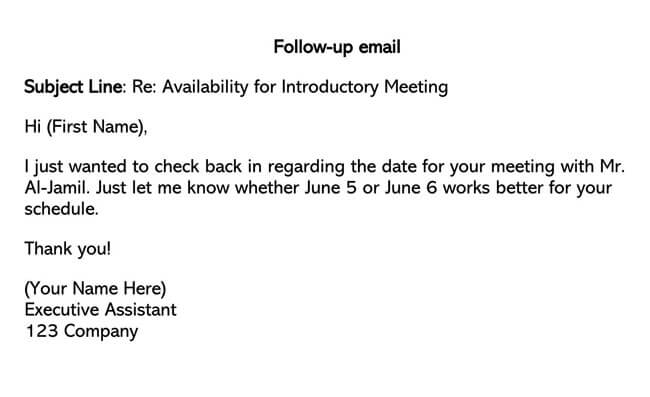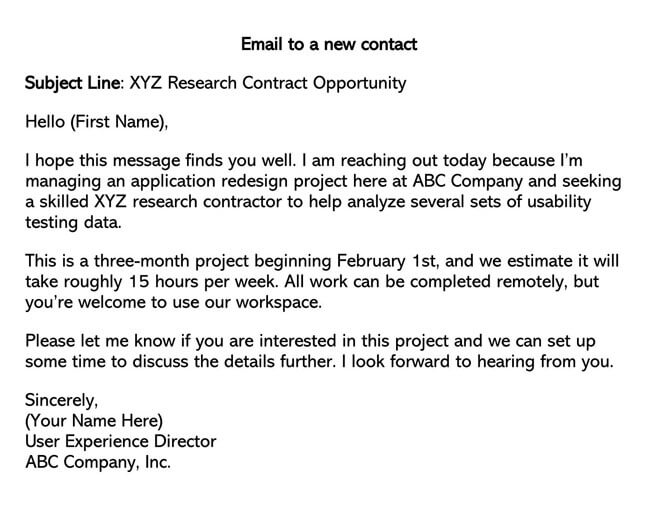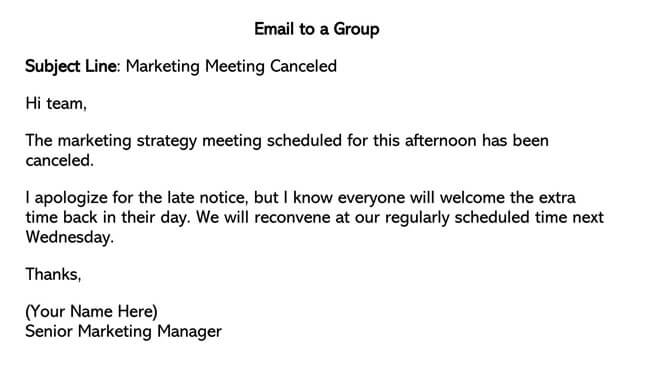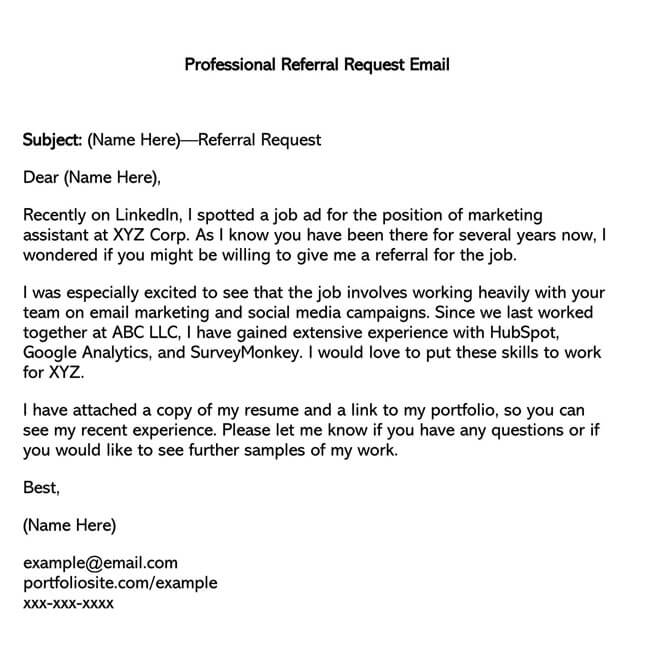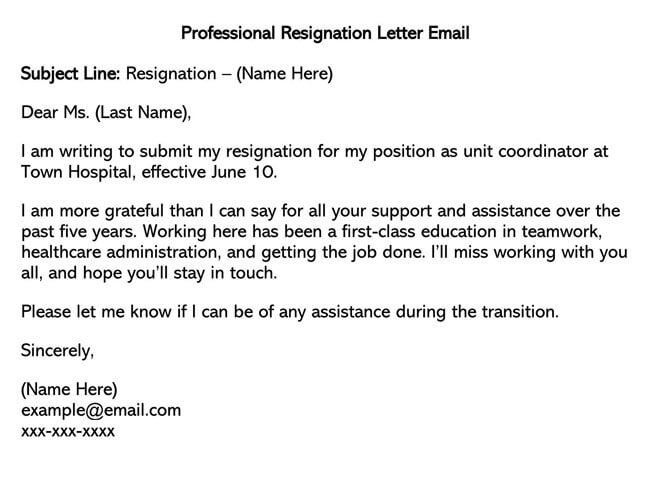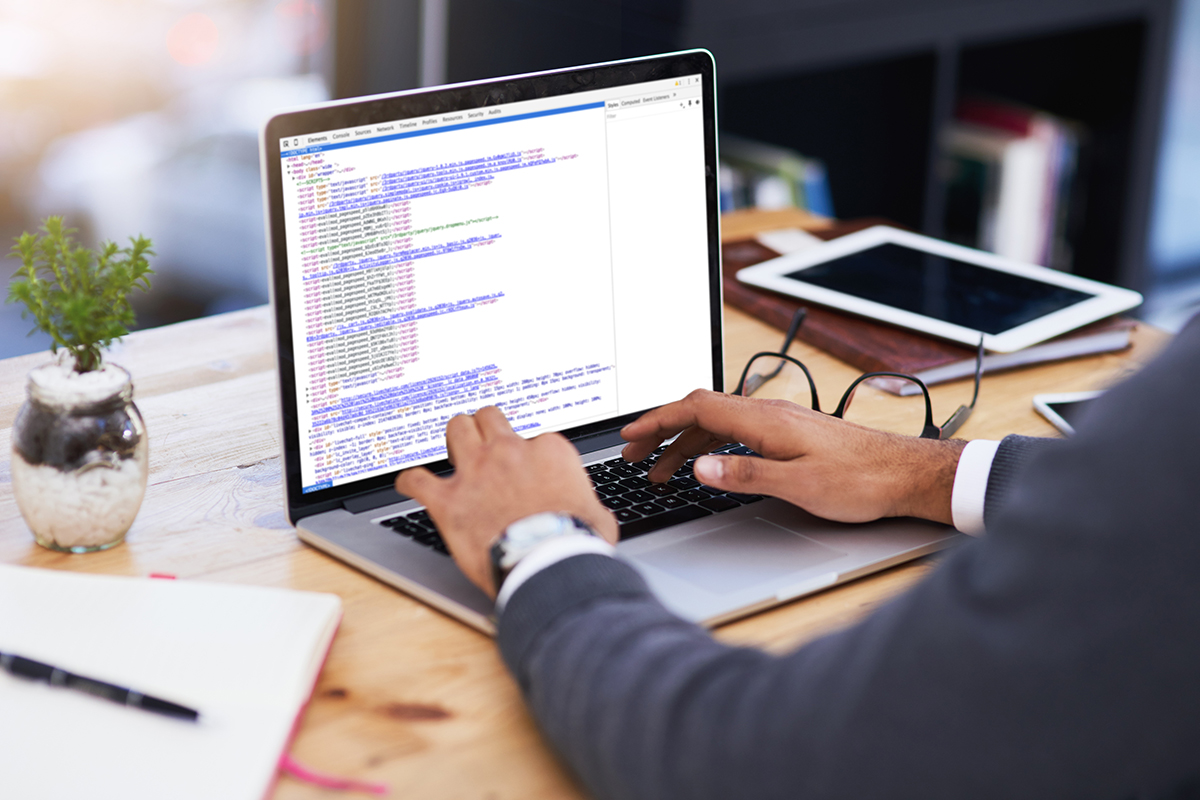There is a need for you to learn the difference between emailing your friend and trying to apply for a job. These two emails are different as the messages are conveyed differently. It might be easy for you to use slang, emoticons, and relaxed tones when it comes to a friend.
But, professional emails like the ones you send when applying for a job have a different set of rules. It would be best to learn how to write this email to avoid missing opportunities due to poor communications.
Professional emails are those emails that focus on formal and business-oriented messages.
They may include thank you emails, resignation emails, applying for a job email, survey emails, and many more.
Free Templates
Professional Email Format
Apart from emails you send when applying for a job, there are many other professional emails. They include emails sent when resigning, thank-you emails, requesting a recommendation letter, and even sending a cover letter to your prospective employer.
Let us focus on the format of a thank you email to ensure you grasp the basics of writing a professional email.
Subject line
This should convey your intended message. In the case of a thank-you email, your subject can be “Thank You.”
Greetings/ salutations
No matter the length of your email, you must start with salutations. If you are on a first-name basis, use the person’s name. Otherwise, use their title.
For instance, “Hello Mercy or Hello/Dear Hiring Manager”
Body
Here, it would help if you focused on your intention for writing the email. Try and be brief by going straight to the point. Lengthy emails tend to be repetitive and can put off the recipient. For a thank-you email, mention what you are grateful for and show your appreciation.
Closing
In most professional emails, the closing is where you mention you complete and finalize your message. You can also mention your recap of your requests and the message you had relayed in your body.
Sign-off
For your sign-off, write your name, title, and any other relevant contact details. The sign-off depends on the type of professional email you are writing.
Crafting a Professional Email
As we have established earlier, professional emails are not your everyday basic emails that you might write to friends or family. Since professional emails are written for important and serious issues, you need to learn the basics of crafting one.
These common practices should be upheld if you desire to craft a proper professional email.
Establish and know your goals
It would be best if you first established what you want to communicate before you write your email. After you have the purpose of your email in mind, target to shape your message to relay your purpose.
Identify your audience
Know your audience before writing your email. The tone and language of your professional email depend on your email’s recipient. Also, no matter your audience, your email must remain brief.
Follow-up is a must
Professional emails are always targeting important and busy individuals. In case there is no reply within two to three days, it is wise for you to write a follow-up email.
Professional Email Template
Such a template is a structure that provides a format of how to write a professional email. Here is an example of a template that you can use to write a professional email.
template
To
Cc
Bcc
Subject: (Short phrase that summarizes your message)
Dear/Hello/To whom it may concern (Name or Title),
Body (Introducing yourself and stating the purpose of your email)
Closing (Recap your message and add your requests. For instance, “I look forward to hearing from you.”)
Sign off (Your Name and Signature)
Professional Email Samples
For you to better understand the format and how to write a professional email, here are some samples of professional emails and their examples. These will guide you as you attempt and successfully write several professional emails.
New contact email
Writing this email to a new person or stranger is an easy task. However, you have to shape your message in a way that your email gets a response. The new contact you are targeting is most likely receiving many emails. Your professional email must stand out to get a response.
Ensure you state your subject clearly and in an engaging manner. Write your salutations and start the first paragraph by focusing on them. Proceed to state your purpose and conclude with a recap of your message. Do not forget to write the sign-off.
New contact email example
Subject: Have you considered purchasing new contact lenses?
Hello Mercy,
I hope that this message finds you well. I am reaching out to you from XYZ Company that deals with different optical needs.
There is an offer for a 15% discount on contact lenses that we believe would interest you. You are welcome to reach out and gather more details on this.
Let me know if you are interested. I am looking forward to hearing from you.
Sincerely,
Ahmed Caleb
Sales Executive
XYZ Company.
In the case where your email addresses two to four people, you can mention their names in the salutations, for example, “Dear John and Paul.”
Group email example
Subject: Meeting at 4 pm
Dear Sales Team,
I would like to inform you that there will be a sales and marketing meeting at 4 pm today.
I expect all of you to show. Please respond for confirmation of attendance. I would also appreciate being informed in advance if any of you is going to miss the meeting.
Thank you.
Ahmed Caleb
Vice Managing Director
Follow-up email
You write a follow-up email when your previous email did not get a response. This professional email should be polite and should not sound demanding.
Follow-up email example
Subject: Re: Application of the Custodian Position
Dear Hiring Executive Manager,
I would kindly like to check back in concerning the Custodian position I had applied for on 9th March 2021. I would really appreciate your response concerning the same.
Thank you for the opportunity and platform.
Perkins Quinn
Housekeeping Supervisor
Referral request email
Referral request emails are professional emails that you write to “ask for a favor.” You need to avoid being pushy or sound too much like you are begging. You need to maintain professionalism when writing this particular type of email.
Referral request email example
Subject: Referral for the Secretarial Position at QPR Company
Dear Dave,
I hope you are doing well. I have been working at QPR Company since I completed my attachment and internship at your company. Currently, there is an opening for the Secretarial position. I have been under your supervision in the same position for a while.
I am hoping that you can write me a referral letter to allow me to get a chance to get the Secretarial position at QPR Company. I am looking forward to hearing from you.
Thank you.
Charlie Stone
Resignation email
You write this professional email when you want to formally quit or leave your job. It is a polite way to be appreciative of the job you had and to inform the company or institution of your departure.
However, it is not advisable to state the reason for your resignation
Resignation email example
Subject: Resignation – Charles Stone
Dear Mr. Johnson,
Please accept this email as my formal resignation from the company. I plan to leave on 20th March. 2021. I have some personal health-related issues to deal with that require my full attention.
Please inform me in case you need any assistance in the transition process of replacing me.
I would like to appreciate the opportunity you gave me as I worked here for the last 10 years. I am forever grateful to you, the management, and colleagues.
Thank you once more, and I am hoping that we stay in touch.
Sincerely, Charles Stone
Supervising Director of Sales Department
Important Considerations
Throughout the article, we have helped you learn much of the most important aspects of professional emails. Here are some of the professional tips you will need to write a professional email.
- Pick a font style that does not distract the recipient from the intended message. Do not use colored fonts, capital letters, or bold and italics. You need your message to be seen professionally so avoid unnecessary editing.
- Ensure your message is complete with a sign-off and the correct recipient’s details. It is necessary to confirm this so that you send your message to the correct person and also enable them to reach back to you.
- Check your email to avoid hanging messages before you send them. You might have written a complete email but accidentally deleted a part or failed to mention it. Go through your email to avoid and correct such mishaps.
- Spell check and grammar check your email before sending it. Ensure you do not send an email will mistakes. It will make you look unprofessional.
pro tip
Before actually sending your email, send a test email message. Send the email you have written to yourself to check that it is correct and professional.
- Stay brief as you write your email. Go straight to the point. The professionals awaiting your email do not have time for lengthy emails and might ignore them. Hence, keep your email concise.
- Have a record of your email by sending it to yourself before sending it to the recipient. This way, when asked for proof of a sent email, you can comfortably retrieve it and use it.
- Ensure you file your copies to make it easier for you to access all your important past emails. Have your emails categorized and well-labeled. It will be useful when you need to make any references from your email.
- In a professional email, be sure to avoid emoticons. They will make you less professional and might also distract or offend the recipient.
- Ensure you are polite and graceful as you write your professional email. Apart from that, try and send your email at a proper time.
Frequently Asked Questions
A professional email means that you have to be formal. Therefore, you should start your email with correct salutations or greetings. In most professional emails, you may not know the recipient’s name; use their title when addressing them.
People generally communicate messages of gratitude, resignation, application of jobs, announcements, and even requests for recommendation letters. The message that is relayed in a professional email is always brief, formal, and somewhat sensitive.
Final Thoughts
Communication is an essential part of our daily lives. The digital era has made it more effective and convenient for us with tools like emails. Writing an email is cost-effective and fast for you. Ranging from formal to informal emails, you need to learn how to write a professional email.
You need to know how to write a professional email to write thank-you emails, resignation emails, or even apply for a job. Writing a professional email can be hectic. However, with the provided tips and practices of crafting a professional email, you have an easier way of writing a professional email.
Finally, download and try out the free professional email templates to make writing one even more comfortable.
